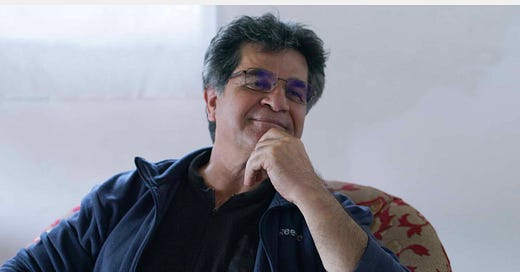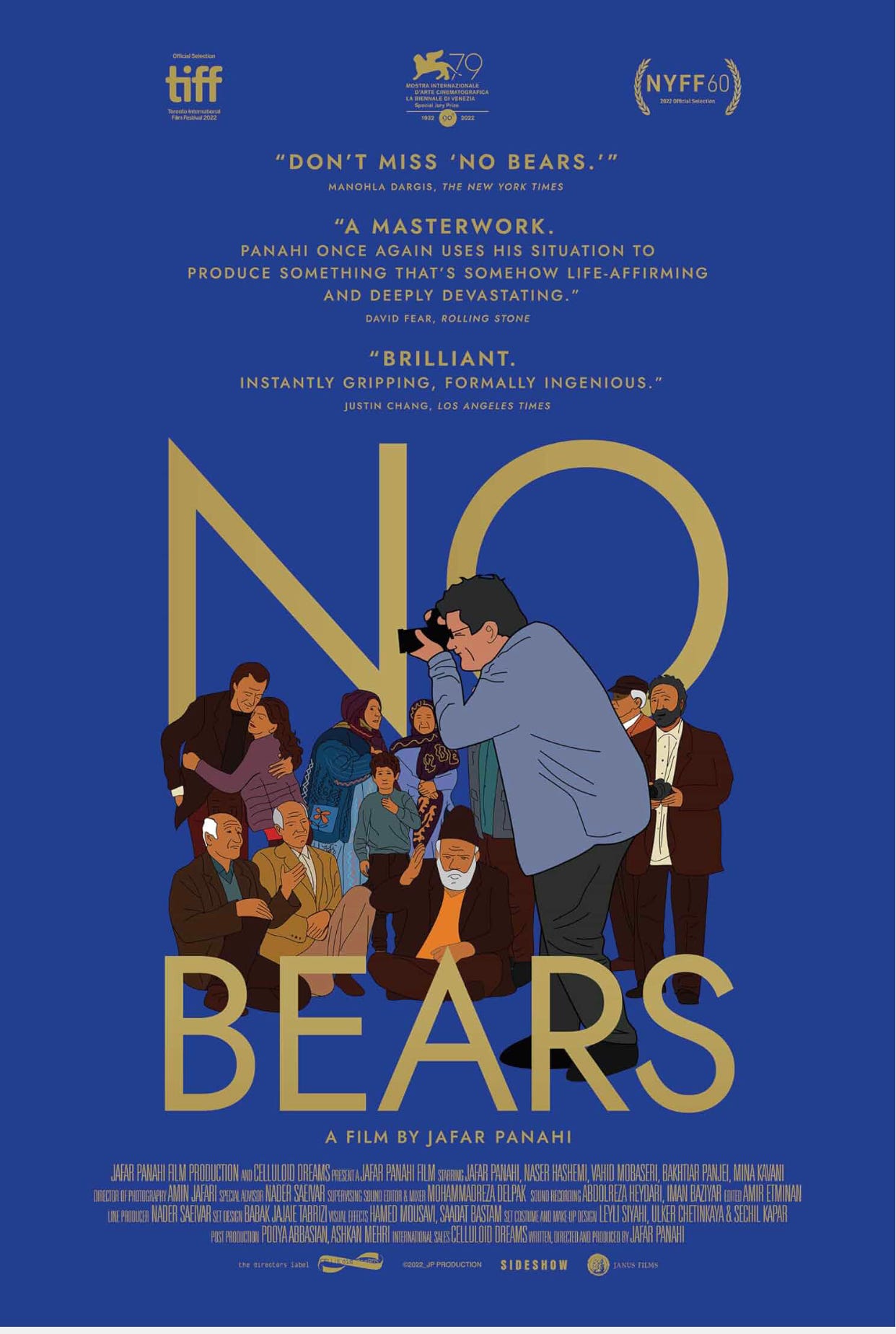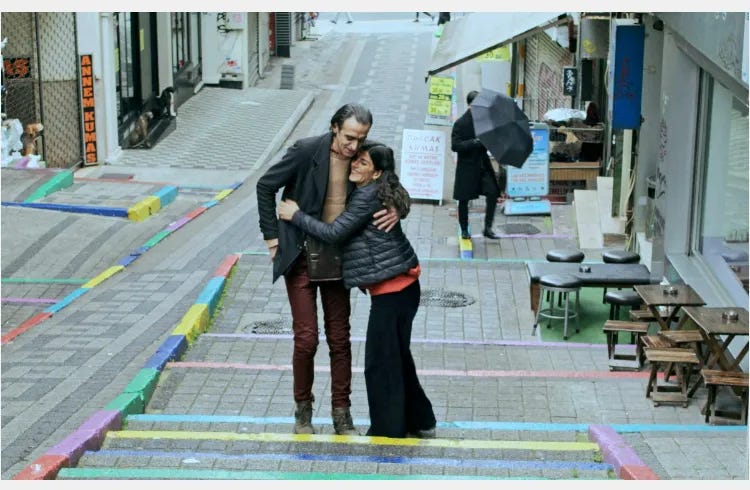Congratulations to Jafar Panahi for winning the Golden Palm in Cannes for his new movie It Was Just An Accident, perhaps the crowning achievement of his already long and illustrious career.
A long time ago, I had both the pleasure and the honor to interview the Iranian filmmaker, when he visited the International Film Festival Rotterdam (IFFR), when his movie The Circle (2000) played there.
Friendly and intelligent, he was critical of the Iranian regime, though still hopeful for the future. These days he is more outspoken and probably a lot more angry, and who can blame him after all the atrocities he and the people of his country have gone through.
Throughout his career Panahi’s film have won many awards, starting with his first feature The White Balloon (1995) winning the coveted Camera D’Or in Cannes, followed by The Mirror (1997) claiming the Golden Leopard in Locarno, Crimson Gold (2003) bagging the Un Certain Regard Jury Prize in Cannes, and - I’m skipping a few now - Taxi Tehran (2015), winning the Golden Bear at the Berlinale.
It’s amazing how many movies he has made - I count twelve features - if only because at one point he got banned from making them for twenty years. Panahi just soldiered on, from house-arrest to prison, making them illegally and, one way or another, getting them to play at major festivals.
I haven’t seen his new movie yet, but I hope winning the Golden Palm will make his movies more accessible to a larger, international audience.
I did see and review his previous movie, No Bears, which won the Special Jury Award at the Venice Film Festival in 2022, while Panahi was serving a six year prison sentence on the trumped up charge of protesting against the imprisonment of other filmmakers. He would eventually be released after six months.
In No Bears, Panahi himself plays the leading role as a filmmaker called Jafar Panahi, who is no longer allowed to make movies or leave the country because he has been too critical of the regime.
Therefore, he has to make his new film in secret. He has rented a room in a village near the Turkish border and directs the filming that takes place just across the border via Skype: a fact-based love story about a couple who are trying to flee to the west with false passports.
In between filming, Panahi gets involved in another love story in the village where he is staying. He would have accidentally taken a photo of a couple having an illegal relationship. The consequences could be terrible for the young lovers, since the girl is to be part of an arranged marriage.
Panahi mixes docu-drama and auto-fiction to great emotional effect. No Bears starts off deceptively simple, but the movie gradually becomes more layered. The lovers in both stories are thwarted by powers that are both visible and invisible.
Superstition also plays a part: the people in the village are warned that there may be bears in the woods, so they shouldn’t stray too far. But what if in reality there are No Bears? What’s to stop people from venturing out if not for the fear that has been installed in them?
Criticism of the Iranian regime starts with some subtle remarks, but the tone becomes increasingly sharp and when Panahi lets his actors talk openly about torture in Iranian prisons, it is clear that the director has thrown all caution to the wind.
No Bears is the work of someone who feels that he has (almost) nothing left to lose. It is an impressive arthouse drama by a master filmmaker, up there with other Panahi classics like The White Balloon, The Circle or Taxi Tehran.
Note: No Bears is available to stream through platforms like Prime Video, Google Play and Apple+ TV.






I've seen 'Offside', Taxi and 'This Is Not a Film'. Plus his son's 'Hit the Road'. I'll definitely watch these.
Persian cinema is terrific, Dir Asghar Farhadi in particular i.e., 'The Past', About Elly' 'The Salesman' etc.
Other excellent movies are 'Turtles Can Fly', 'The Seed of the Sacred Fig', 'Holy Spider', and 'Just 6.5'.
On a different note, the American-Iranian immigrant family comedy, 'The Persian Version' was a hoot.